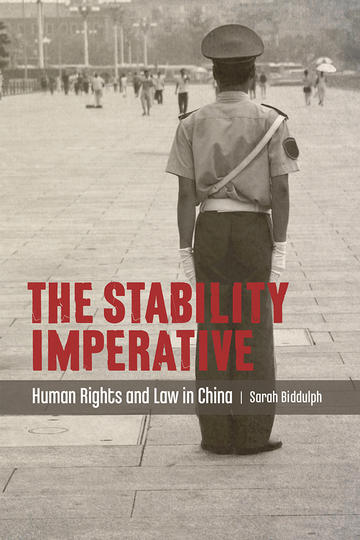Growing inequality within Chinese society has led to public indignation, petitions to Party and state agencies, strikes, and large-scale protests. This book examines the intersection between the Chinese government’s preoccupation with the “protection of social stability” (weiwen), and its legal commitments to protect human rights. Drawing on case studies, Sarah Biddulph examines China’s response to labour unrest, medical disputes, and public anger over forced housing demolition. The result is a detailed analysis of the multiple and shifting ways stability imperatives impinge on the legal definition and implementation of human rights in China.
Sarah Biddulph is an Australian Research Council Future Fellow (2014-18) and professor of law at the University of Melbourne Law School. She specializes in the research and teaching of Chinese law. Her research focuses on the Chinese legal system with a particular emphasis on legal policy, law making, and enforcement as they affect the administration of justice in China. Her particular areas of research are contemporary Chinese administrative law, criminal procedure, labour, comparative law, and the law regulating social and economic rights. Her recent publications include: Legal Reform and Administrative Detention Powers in China (2007) and Law and Fair Work in China: Making and Enforcing Labour Standards in the PRC (2013), co-authored with Sean Cooney and Ying Zhu.
- Winner, Clio-North Prize, Canadian Historical Association
- Short-listed, Canadian Law and Society Book Prize, Canadian Law and Society Association
Biddulph has written an outstanding contribution to the field of human rights and law as well as to the field of governance and social stability/protests. The uniqueness and strength of the book lie in the author’s ability to bridge and unite insights from different research areas and in her rich empirical material. [Biddulph] shows how issues of human rights and governance are intertwined and shape the life of individual citizens as well as the work of different state and non-state actors and institutions.



